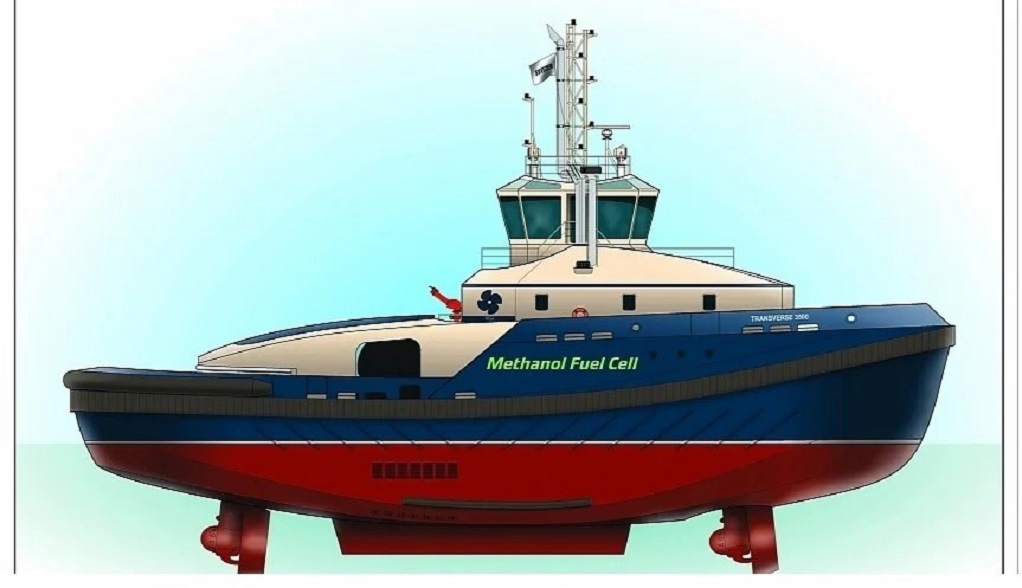The hybrid tug developed by Svitzer, a Denmark-based towage provider, part of the giant A.P Moller-Maersk, claims to be better even than the most recent all-electric tugboats. The reason behind that is simple. Just like with any other type of vehicle, hybrid propulsion improves endurance compared to purely electric systems. It doesn’t have an official name yet, but it promises to be a game-changer.
This MHFC tug will basically be self-sufficient. In addition to longer endurance, it will mostly be free of the inherent operational constraints of battery-powered vehicles. That’s because its secondary generators, fueled by methanol, will supply backup power whenever it’s required.
Svitzer claims that compared to a tug of a similar size, running on fossil fuel, its new tug will cut more than 1,300 tons of CO2 every year without compromising performance.The Danish operator hasn’t yet revealed more technical details about the future tug. For now, we know that it will be based on Svitzer’s own award-winning TRAnsverse platform. The main design project is none other than the acclaimed naval architecture company Robert Allan. Robert Allan is also linked to the design of the Haisea Marine tugboat fleet, which will operate in Canada, and eWolf, America’s first electric tugboat, due to operate in the Port of San Diego.
As for this MHFC tug, it will show what it can do in a port known for its pioneering green initiatives, the Port of Gothenburg in Sweden. Gothenburg plans to become, among other things, a strategic methanol bunker hub and has already taken significant steps in that direction. A methanol fuel cell tugboat providing green towage fits perfectly in line with this plan. It will help the huge Swedish port reach its goal of cutting emissions by 70% by the end of this decade. Svitzer is now working on the second phase of the MHFC tug project, which will focus on the vessel’s design together with Robert Allan. The next phase will be dedicated to selecting the best onboard equipment for the future tug.Damen introduced a similar project last year, harnessing the benefits of methanol. However, in Damen’s case, we’re talking about dual-fuel methanol/diesel tugboats, which would be ready for commercial service three years from now. According to the Dutch giant, methanol-ready dual-fuel engines could help lower emission levels while being drastically more powerful than all-electric versions.
Tags: Fuel Cell, Methanol, Svitzer, Tugboat



Recent Posts
Greenlyte and MB Energy sign strategic e-methanol offtake agreement
CSDC and TECHNOLOG forge alliance to drive green, smart shipbuilding
DPA Kandla invites bids for India’s first port-based bio-methanol plant
Green & Digital Maritime Corridors Dialogue’ at JNPA sets stage for India Maritime Week 2025
Thermax partners with HydrogenPro for alkaline electrolyser systems in India
PIL Conducts First Simultaneous Cargo and LNG Bunkering in Singapore
NYK Takes Delivery of LNG-Fuelled Capesize Bulker SG Dawn
Swire Shipping joins Achilles Maritime Network to strengthen supply chain sustainability and compliance